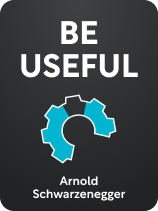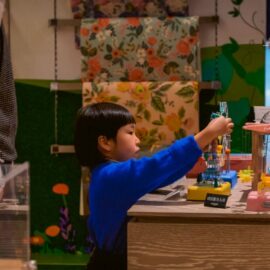

This article is an excerpt from the Shortform book guide to "Be Useful" by Arnold Schwarzenegger. Shortform has the world's best summaries and analyses of books you should be reading.
Like this article? Sign up for a free trial here.
Do you know how to keep an open mind? How can you confront challenges head-on?
Learning to manage your time and how you frame things can help dispel the unhelpful belief that life is just something that happens to you. Keeping an open mind will help you respond better to unexpected events in your journey, and teach you how to overcome obstacles.
Discover why keeping an open mind is essential for your self-improvement journey.
Confront Challenges and Open Your Mind
Life provides a myriad of circumstances—both positive and negative—and the way you choose to respond significantly shapes your personal journey. Arnold Schwarzenegger explains that you need to see failure as nothing more than a call for more improvement, which you can facilitate by always keeping your mind open to new knowledge and actively being curious about the world and people around you.
Not everything in life is under your control, but how you react certainly is—whether to a setback, a problem, or even an unexpected stroke of luck. Schwarzenegger suggests that bemoaning your past or current problems wastes time that could be spent chasing your dreams. To reclaim this lost time and learn from your hardships, you need to learn how to keep an open mind by pausing and shifting your thinking to an optimistic view. Even failure doesn’t mean you’ve been wasting your efforts—instead, consider it a teaching moment on your journey. Schwarzenegger mentions weightlifting as a sport in which failure is used to measure progress every day. It’s only when a weightlifter pushes her muscles until they fail that she knows she’s putting in enough effort.
(Shortform note: As with the “fixed mindset” discussed earlier in this guide, we tend to view struggles negatively because we’ve been taught that struggle signals weakness, when it’s actually a sign that we’re experiencing growth. In Limitless Mind, educator Jo Boaler writes that having a hard time working through a problem is good for mental development. Brain scans prove that people who make mistakes and correct them show more mental activity than people who don’t have to struggle through a problem. Therefore, people who fight through their difficulties exercise their brains more than people who don’t. Thus, Schwarzenegger’s example of physical progress via pushing muscles to the point of failure applies equally to the mind.)
Just as pushing yourself is key to physical fitness, it’s vital for mental acuity as well. Schwarzenegger writes that your learning must extend beyond the confines of traditional education and carry on throughout your life. You can and should gain whatever knowledge you can from anyone, anywhere, and in any way. Real-world experiences—taking action, solving problems, pushing your boundaries and, yes, even failing—offer invaluable lessons that you can’t learn in a controlled academic setting. Remember that knowledge functions like a muscle—you have to apply it or you risk losing it. But if you actively maintain and make use of what you learn, you can significantly improve both your life and the world around you.
(Shortform note: The lifelong learning Schwarzenegger advises is no longer optional in today’s evolving job market. Technological advances and automation have blurred the correlation between traditional education and how much you earn. There’s a rising demand for employee roles requiring new, diverse skill combinations, but employers are less likely to invest in workforce training. Therefore, you need to take the initiative to constantly update your skills throughout your career. Some business and government initiatives aim to bridge the gap between formal education and the needs of modern employment, but Schwarzenegger might argue that it’s primarily your job to keep up with whatever changes your career requires.)
Always Be Curious
Curiosity is key to lifelong learning. Schwarzenegger says that being curious transforms the people around you into potential teachers and attracts those who recognize your eagerness to learn. Don’t hesitate to inquire about others’ experiences and their fields of expertise; people are often glad to share their knowledge if you adopt a humble approach. Asking “how” and “why” questions is particularly helpful when it comes to retaining what other people teach you, as they help you make connections with other things you’ve learned, leading to deeper understanding. Through continuous learning, your grasp of the world expands, and with it, your control of your life’s circumstances, easing your path to achieving your dreams.
Schwarzenegger writes that throughout his various careers in bodybuilding, movies, and politics, he’s never stopped being a student. His hunger to keep learning propelled his growth at every stage of his life. By viewing himself as a perpetual student, he learned valuable lessons from every available teacher who crossed his path. Even when working out in a gym—an arena in which he’s an undisputed master—he’ll still approach his fellow weightlifters to inquire about any exercises they’re doing that he’s unfamiliar with. As governor of California, he was surrounded by policy experts whom he questioned incessantly so he could understand every angle of the complex issues he faced.

———End of Preview———
Like what you just read? Read the rest of the world's best book summary and analysis of Arnold Schwarzenegger's "Be Useful" at Shortform.
Here's what you'll find in our full Be Useful summary:
- Arnold Schwarzenegger’s unique perspective on success
- Why Schwarzenegger gravitated toward a life of public service
- How to treat life as a cooperative game and lift others up with your efforts






